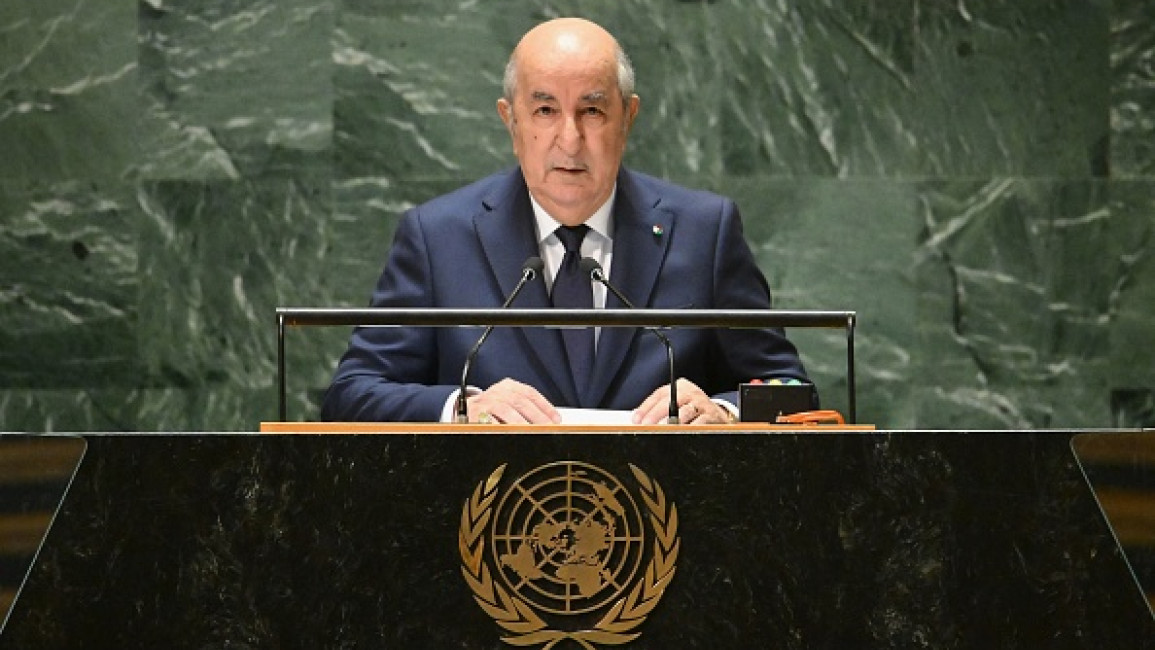After US disapproval, Algeria set to submit revised ceasefire draft to UNSC
Algeria is poised to present a revised draft resolution calling for an immediate ceasefire in Gaza as the North African nation seeks to sway the veto-wielding powers in the UN Security Council (UNSC) to pass the resolution.
The new resolution "demands an immediate humanitarian ceasefire that must be respected by all parties." It also rejects the forced displacement of civilian Palestinians.
The draft reiterates "unwavering commitment to the two-state vision where two democratic states, Palestine and Israel, live side by side in peace."
It was not immediately known when Algeria's draft resolution could be put to a vote.
NEW: @AlgeriaUN circulates rev2 of their #Gaza #CeasefireNOW draft resolution to #UNSC members. The draft reso now "demands an immediate humanitarian ceasefire that must be respected by all parties." It also demands the implementation of the two previous Gaza resolutions (2712 &… pic.twitter.com/68G1JvQcoH
— Rami Ayari (@Raminho) February 6, 2024
Last month, Algeria shared its first draft with the 15-member council following a discussion of the International Court of Justice (ICJ) ruling that ordered Israel to take action to prevent acts of genocide, but it fell short of calling for an immediate ceasefire.
Algeria's first draft was not put to vote; however, it has already drawn disapproval from the US.
On 2 February, US Ambassador to the United Nations Linda Thomas-Greenfield said that Algeria's draft UNSC resolution calling for a Gaza ceasefire could jeopardise "sensitive negotiations" aimed at brokering a pause in Israel's war.
In the UNSC, a resolution needs at least nine votes in favour and no vetoes by the United States, Britain, France, China or Russia to be adopted.
Last month, the US, Israel, Egypt and Qatar drafted a proposal for an extended pause in fighting.
The truce proposal failed since Tel Aviv refuses to discuss a proposal that includes a commitment to stopping the war on Gaza, which Hamas demands.
So far, the only truce in the strip lasted a week in late November. Four months into the war, Washington, Israel's main ally, continues to oppose a ceasefire in Gaza, claiming that it would benefit Hamas — a Palestinian armed militant group in the strip.
On 26 January, the ICJ delivered a ruling on South Africa's genocide case against Israel, ordering Israel to take all possible measures to prevent genocide acts in Gaza and demanding Israel to report on implementing the measures within one month.
But on the ground, for many Palestinians in Gaza, the Israeli army forces are still committing genocidal crimes despite the ICJ's ruling, says The New Arab's reporter, Sally Ibrahim, in the besieged coastal enclave.
The UN says that about 100,000 people in Gaza have been killed, injured or are missing since the start of the war last October.



